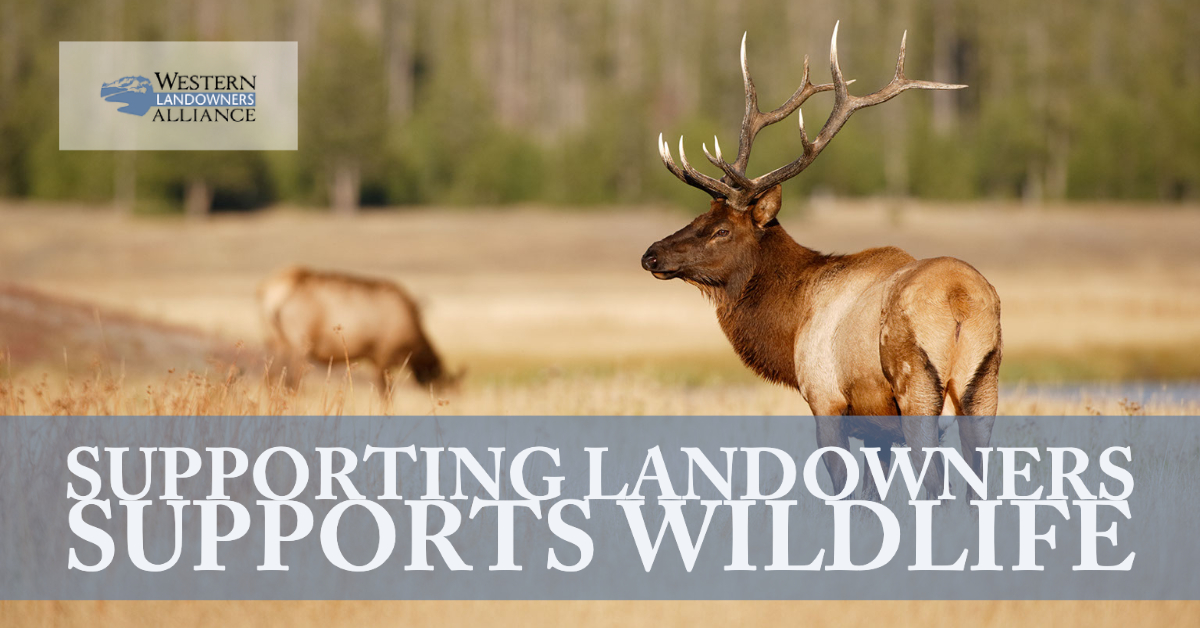WLA’s statement on removal of Jeremy Vesbach from NM Game & Fish Commission
Santa Fe, NM – Governor Michelle Lujan Grisham properly understands that agriculture, recreation and conservation are all important to New Mexico and that the rights and interests of diverse stakeholders need to be respected and balanced. The governor’s actions Tuesday reaffirm that the commission’s job is to maintain the delicate balance of state interests that many stakeholders, the legislature, the game commission and the Department of Game and Fish (NMDGF) have worked hard to achieve.
Misinformation being disseminated on this issue suggests that landowners are trying to close off public access to streams on private land. This simply is not true. New Mexico has long held access to streams flowing across private land required the permission of the landowner. New Mexico statute NMSA 1978, 17-4-6(C) reads, “No person engaged in hunting, fishing, trapping, camping, hiking, sightseeing, the operation of watercraft or any other recreational use shall walk or wade onto private property through non-navigable public water or access public water via private property unless the private property owner or lessee or person in control of private lands has expressly consented in writing.” A subset of sportsmen in the state are seeking to overturn long-standing laws, regulations and property rights to gain access to private land.
This same subset of sportsmen is attempting to eliminate the state’s successful EPLUS elk management program, which helps compensate landowners for the costs of supporting one of the nation’s largest elk populations. The EPLUS program supports the state’s ability to manage wildlife appropriately, is important to rural and agricultural economies and provides opportunities for both resident and non-resident hunters to access private land under voluntary agreements. The EPLUS program is used by landowners across the state, including many who have been on the land for generations. Hunting opportunities provided by the EPLUS program benefit youth, veterans, charitable causes, families in need and elderly residents, among others. The Governor is not fence-sitting on issues like this. She is balancing competing priorities as is the appropriate role of a governor.
From the conservation standpoint, New Mexico is a largely rural state and private lands provide approximately 50% of the habitat wildlife need to survive. This isn’t just big game habitat, this includes habitat for both game and non-game species, including those which are presently imperiled. In New Mexico, 116 species are listed as threatened or endangered, and more edge closer to the brink of extinction every day, among them native trout and many other wildlife species dependent on our limited streams and riparian systems. Many of these species rely on private land, where there is less human pressure, for refuge and survival. They also rely on the personal investments of private landowners who are conserving and restoring habitats across the state.
Yet the costs of owning and managing land are high and rising. Many family farms and ranches are struggling to survive. According to the University of New Mexico’s Bureau of Business and Economic Research (BBER), the state has lost an average of 218,000 agricultural acres per year over the past two decades. From 1997-2017, the state lost 5.1 million agricultural acres. With this, we are losing not only our agricultural economy and food security, but wildlife habitat and species.
There are very limited ways to generate sufficient income to keep lands intact and to support land-based rural economies. Ranching and farming is the primary means of doing this across much of New Mexico yet in many cases, damages from elk to fences and competition for forage with livestock threaten the economic viability of these operations. This is particularly true for smaller farms and ranches located in areas of heavy wildlife use. EPLUS provides one of the very few means these landowners have to generate enough income to keep the land intact.
We appreciate the Governor’s leadership in meeting the many diverse interests of the state, including those of sportsmen, landowners, rural communities and wildlife.
Join WLA to stay up to date on the most important news and policy for land stewards.
Become a member for free today and we will send you the news and policy developments critical to the economic and ecological health of working lands.
WLA works on behalf of landowners and practitioners throughout the West. We will never share your contact information with anyone.
©2026 Western Landowners Alliance • PO BOX 27798, Denver, CO 80227 • 505.466.1495
Western Landowners Alliance is a 501 (c)(3) non-profit recognized by the IRS.
Tax ID: 46-1346488
